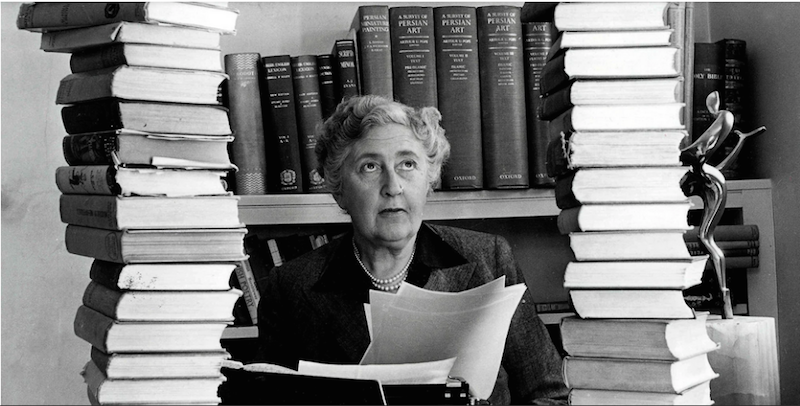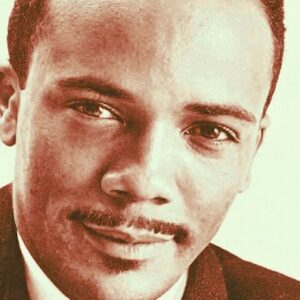For anyone passionate about both Agatha Christie as well as a wee bit nerdy when it comes to names, in reading any of her novels or short stories readers are immediately provided with a wealth of memorable and often unique names: Hercule, Amyas, Linnet, Odell and Honoria are a small sampling of some of her more unusual and eclectic character nomenclatures. Aside from simply being fun to come across, though, Christie’s use of names in her mysteries also give us a glimpse into a variety of fascinating topics, from societal conventions to Christie’s takes on characters who hail from outside of England.
Names reveal quite a bit about how the social classes of Christie’s time operated. Christie gives her upper-class, wealthy characters monikers that very much reflect their higher status. These characters often have hyphenated last names and posh-sounding first names, not to mention titles. Some such instances include Sir Gervase Folliat of Dead Man’s Folly, the Honourable Patricia Brice-Woodworth from Sparkling Cyanide and Lord George Alfred St. Vincent Marsh, the 4th Baron of Edgware from Lord Edgware Dies.
Additionally, some of Christie’s genteel, manor-dwelling socialites sport some intriguing nicknames: Lady Eileen “Bundle” Brent, Diana “Bunch” Harmon, and Hermione “Egg” Lytton Gore are some of the particularly memorable ones. Many well-to-do British members of society had such eccentric and even childish nicknames for a number of reasons; one of them being simply because they weren’t going to be expected to hold down a proper job; so there were no major worries about being taken seriously whilst being called Bunny or Chip. At the time, it was common for peer groups to give each other nicknames, whether a street gang or, in this case, the upper crust. And naturally, some of the nicknames were derived from boarding school days at Eton or elsewhere.
On the other end of the social pecking order, Christie’s domestic worker characters sport rather different names than their employers. The British maids and butlers are typically only ever referred to by their first names or just their last names; the maids and housekeepers have names like Gladys, Ellen, Doris, and Mrs. Bishop. Butlers are last-name only and include Tressilian, Horbury, Lanscombe and Gudgeon.
What is also particularly intriguing to note about Christie’s use of character names for her domestic help is that those who work in the service but are somehow a bit “above” the typical serving class, like heroine Lucy Eyelesbarrow from 4:50 From Paddington, get an actual combination of both first and last names, subtly noting that such characters came from an initially more privileged background: Lucy, for instance, is a well-off, intelligent scholar who ventures into the nursing and housekeeping world for the money and the challenge.
Christie was extremely well-traveled and had a good knowledge of French, so these areas of knowledge are reflected in her character names that represent languages and cultures that she was familiar with; French of course being the primary one but Arabic to some degree as well because of her archaeological travels with Sir Max Mallowan. Therefore, the characters with French names are quite accurate in terms of their time and place, like the French household staff in Murder on the Links: Leonie, Auguste and Denise; or her meticulously researched ancient Egyptian names for characters in Death Comes At the End, such as Satipy and Renisenb.
However, it’s rather clear that Christie wasn’t quite as intimate with other languages and cultures as French: her admittedly hilarious satirical fake country, Herzoslovakia, features names that amalgamate various Slavic languages: Count Sylptich, Queen Varaga, Prince Michael Obolovitch and Baron Loloprejztyl are not exactly names that one would truly find in modern-day or historic Poland and Bulgaria, for instance. Her Chinese, “middle European” and Scandinavian characters tend to receive names that are also clearly either fabricated or stereotypical: Hildegarde Schmidt from Murder on the Orient Express, Ah Ling from The Big Four, Mitzi from A Murder is Announced and Kirsten Lindstrom from Ordeal by Innocence to name a few.
Last but certainly not least, Christie often utilizes first names in such a way that indicates to the reader that the character is going to be unconventional and eccentric: simply by picking an extremely unusual first name. Dramatic, beer-loving artist Amyas Crale from Five Little Pigs comes to mind, as does mysterious, witchy Thyrza Grey in The Pale Horse. It simply wouldn’t fit to have these characters have names like John and Emily for the sake of the story, and any name nerd worth their salt appreciates that aspect of Christie’s character craft.

















